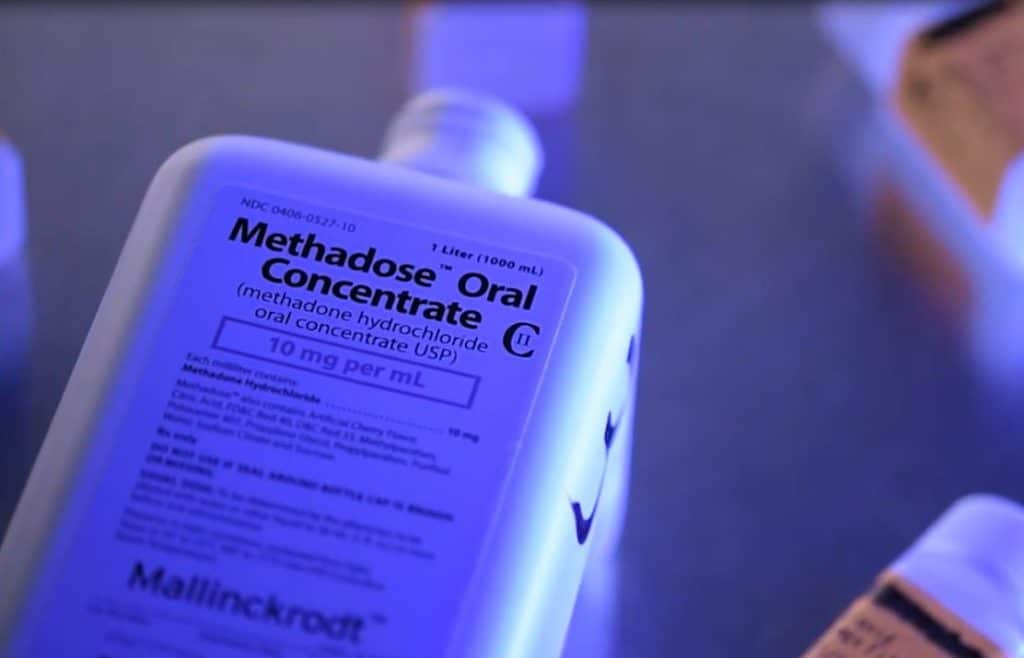Opioid addiction has become a major public health crisis, affecting millions of people worldwide. Fortunately, there are several effective medications available to help individuals struggling with opioid addiction. One such medication is methadone, which has been used for decades to treat this condition.
In today’s blog post, we will explore how methadone works to alleviate opioid withdrawal symptoms and reduce cravings. We’ll also discuss the pros and cons of using methadone as part of an addiction treatment plan and answer some common questions about its use.
What Exactly Is Methadone?
Methadone is a medication commonly used in the treatment of opioid addiction. It belongs to a class of drugs known as opioids and works by binding to the same receptors in the brain that other opioids, such as heroin or prescription painkillers, do. However, methadone is different from these drugs because it has a longer half-life than most other opioids.
This means that when someone takes methadone, it stays active in their system for much longer than other opioids would. This helps to reduce cravings and withdrawal symptoms without producing the euphoric high associated with opioid abuse.
There are two methods of opioid treatment. The first is used in detox. This helps the patient wean themselves off of the opiates they were taking safely and effectively. The second is maintenance, called Methadone maintenance treatment. This helps keep people from using other opioids over a longer term.
Methadone can only be prescribed by licensed healthcare providers who have received special training in addiction medicine. It must be taken daily under medical supervision and individuals receiving methadone treatment are closely monitored for any side effects or signs of misuse.
While not everyone struggling with opioid addiction may benefit from methadone treatment, it can be an effective option for many people seeking recovery.
How Does Methadone Help With Opioid Addiction?
Methadone is one of the most effective medications used in treating opioid addiction. It works by binding to the same receptors in the brain that opioids such as heroin and prescription painkillers bind to, but without producing a high. This helps to reduce withdrawal symptoms and cravings associated with opioid addiction.
The length of methadone treatment varies depending on each individual’s needs. It can range from days or weeks in the detoxification process, to months or even years when it comes to maintenance. During this time, patients may gradually decrease their dosage until they are no longer dependent on opioids.
Methadone has been shown to be an effective tool in helping individuals overcome opioid addiction and achieve long-term recovery success. However, it’s important for individuals considering methadone treatment to consult with a healthcare professional who specializes in addiction medicine to determine if it’s right for them.
Pros And Cons Of Methadone Treatment
Methadone treatment has both pros and cons that should be taken into consideration before beginning the program.
Pros:
- One of the main benefits of methadone treatment is its ability to reduce or eliminate opioid cravings. Methadone acts as a substitute for opioids, without causing feelings of euphoria or sedation. This helps individuals in recovery stay focused on their daily responsibilities and reduces the risk of relapse.
- Methadone treatment also provides medical supervision throughout the detoxification process, which can help manage withdrawal symptoms safely and effectively.
- Another benefit is that it can improve overall quality of life by reducing drug-related crime, improving employment prospects, and enhancing family relationships.
Potential Drawbacks:
- Some potential drawbacks to methadone treatment include physical dependence on the medication itself. Individuals may need to continue taking methadone for an extended period of time or even indefinitely in order to avoid relapse.
- Additionally, not all individuals respond well to methadone treatment due to differences in metabolism and other factors. It’s important for patients considering this option to discuss any concerns with their healthcare providers prior to starting therapy.
- There are some side effects associated with methadone use such as constipation or drowsiness; however these are typically minor compared to those associated with opioid abuse.
- While methadone has its advantages and disadvantages when treating opioid addiction; it still remains an effective option when used appropriately under clinical supervision.
What Are The Side Effects Of Methadone?
As with any medication, methadone treatment comes with potential side effects. Some people may experience no negative effects at all, while others may encounter mild to severe symptoms. It’s important to discuss these risks with a healthcare professional before starting methadone treatment.
The most common side effect of methadone is drowsiness or fatigue, which can affect daily activities such as work or school. Constipation and dry mouth are also frequently reported by those taking the medication.
Some individuals may experience more serious side effects such as difficulty breathing, chest pain, irregular heartbeat, and seizures. These symptoms require immediate medical attention.
It’s worth noting that for pregnant women on methadone maintenance therapy, there is a risk of neonatal abstinence syndrome in newborns due to exposure to the drug in utero.
Get Help For Opioids Today, With Or Without Methadone Treatment
Methadone has been proven to be an effective treatment for opioid addiction. It works by reducing withdrawal symptoms and cravings, allowing individuals to manage their addiction and lead a normal life. However, it is not without its drawbacks such as potential side effects and the risk of dependence.
It’s important to understand that methadone treatment may not be suitable for everyone. It should only be considered under the guidance of a medical professional who can provide proper assessment and monitoring throughout the process.
If you or someone you know is struggling with opioid addiction, give us a call. Methadone treatment can offer a path towards recovery but it must always be combined with counseling and other support services for optimal results.
Remember that there’s no one-size-fits-all solution when it comes to opioid addiction recovery. The most important thing is finding what works best for your unique situation— whether it’s methadone treatment or another form of therapy altogether. With determination and commitment, recovery from opioid addiction is possible.












